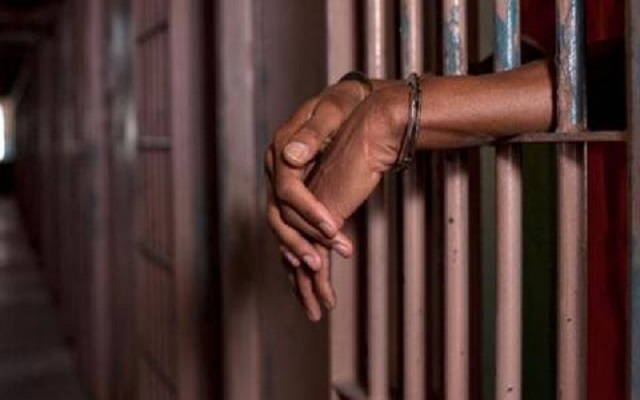The Minister of Foreign Affairs, Mr Geoffrey Onyeama on Wednesday said that it would be impossible to get Nigerians on death row in various countries abroad repatriated home through the Prisoners Exchange Programme.
Onyeama, who spoke to the News Agency of Nigeria (NAN) in Abuja, said that capital offenders did not fall within the prisoners exchange programme.
He explained that it was often impracticable for those convicted for capital offences repatriated unless they were commuted to life sentences.
NAN reports that a Human Rights organisation, Legal Defence and Assistance Project (LEDAP) had called on the Federal Government to increase its efforts in fighting for Nigerians on death row in foreign countries.
The organisation stated that no fewer than 300 Nigerians were currently on death row in prisons across Asian countries since 2016.
A statistics by LEPAD revealed that 120 Nigerians faced the prospects of death in Chinese prisons, and over 170 in Indonesia, Thailand, Malaysia, Vietnam, and five in Qatar, United Arab Emirate and Saudi Arabia.
It estimated that about 16,500 Nigerians were being held abroad, while most of those on death row were convicted of drug-related crimes.
Onyeama, however, said: “each country has its laws and each country is sovereign. So, we do not have any leverage in terms of influencing the laws of countries and the implementation of those laws’’.
“With respect to the death row, in cases where Nigerians have been sentenced to death, we have always intervened to ask for commutation of the death sentence.
“You can have agreements where you can have prisoners exchanges or you can have some mechanisms for after a prisoner has served a certain amount of their sentence.
“They could come back to their country to serve the rest.”
He explained that this could only be possible with countries that Nigeria had such bilateral agreement with.
“There are bilateral agreements that we have with some countries and certainly we do try in those countries to persuade them to send these prisoners back.
“But a lot of them are there for capital offences.
“And very often, it will be impossible for capital offences, unless they are commuted to life sentences to get those countries to agree to send those prisoners back,” he said.
According to him, what we should be doing, is try to sensitise our nationals about the folly of taking those kinds of risks of getting involved in such offences.
“You go to countries where you know that drug trafficking is a capital offence, you are literally taking your life in your own hands.
“We will keep trying to get the message across, but we know that there are some people who are willing to take the risks because some people make it and they see that the rewards are impressive.
“We of course also have to work on education in our countries and providing the enabling environment for people not to need to take those extreme risks,” he said. (NAN)
IAA/OFN/EEE

